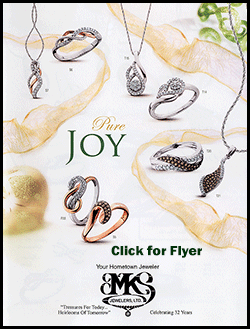|
 Darby, 64, soft-spoken, bespectacled and tattooed, was once one of
the most prodigious bootmakers in the Texas prison system, turning
out more than a thousand pairs of custom-made footwear for police,
FBI agents and the governor's office, prison officials said. Darby, 64, soft-spoken, bespectacled and tattooed, was once one of
the most prodigious bootmakers in the Texas prison system, turning
out more than a thousand pairs of custom-made footwear for police,
FBI agents and the governor's office, prison officials said.
But freedom put an end to that.
After 37 years behind bars, serving time for robbery and murder,
Darby was released on parole in 2011.
The highly skilled bootmaker was looking to open his own shop in a
state that loves its boots. But lacking startup cash, he settled
for making boxes at a food-processing plant.
After only a year on the outside, Darby violated parole by driving
while intoxicated and was sent back to prison.
This time, however, he has not been in the new unit long enough to
earn what is considered a privileged position in a workshop, and the
once-vaunted jailhouse cobbler is not sure if he will ever make
boots again.

"I was working six or seven days a week, and I started drinking a
little bit. That is what brought me back," said Darby in an
interview from the Goree Unit prison in Huntsville, about 70 miles
north of Houston.
The Texas parole board said in an emailed statement: "Mr. Darby was
revoked on August 29, 2012, after he waived his hearing for DWI,
failure to stop and render information and violation of the GPS
monitor."
His next parole review is in March 2015, and Darby does not expect
to be at a bootmaking bench until then.
"He was once a model prisoner and he made boots for everybody" said
Larry Fitzgerald, a longtime spokesman for the Texas Department of
Criminal Justice who has since retired.
"You have to be, to work in the craft shop — because you are
surrounded by weapons of all kinds," he said.
Fitzgerald himself owns three pairs of Darby's boots.
Darby went to prison in 1974 for aggravated robbery. He later
received life sentences for killing two fellow inmates in gang
violence. There was also an attempt to escape along the way, where
he was shot in the head.
"My biggest regret of all was getting in the game," Darby said.
A CELL NEAR THE DEATH CHAMBER
About 14 years into his jail term, Darby met a bootmaker who taught
him the trade. He started out small but soon discovered he was cut
out to be a cobbler.
The work mellowed Darby and he turned out a lot of boots.
[to top of second column] |

Customers made boot-sizing appointments at the Walls Unit in
Huntsville, the prison where Texas implements the death penalty.
They met Darby in a cell set aside for visits that was also near the
death chamber.
Buyers had to sign a contract with the state for the use of prison
labor. The money was paid into a fund because Darby was not allowed
to receive cash directly or profiteer.
There was no direct payment to the state stipulated in the contract
and Darby was taxed on his income, the Texas Department of Criminal
Justice said.
Yet Darby was spending about $2,000 a year from the fund to buy
goods at the commissary, burning through money almost as fast as it
came in.
Financial planning was not a priority for Darby, who was serving
life terms and had already been turned down for parole 22 times.
The 23rd time was the charm and Darby was paroled — with the fund
was mostly depleted, he said.
If Darby gets out again, he plans to settle down with his former
wife and enjoy life in a tiny Texas town, and perhaps to make the
pair of tall red boots with butterfly inlays that she has always
wanted.
After decades of estrangement, Darby's former wife saw a story about
him in True West magazine and got in touch with the man she had last
seen in the 1970s.
They rekindled their romance during parole and pledged to stay
together when he gets out again.

Given his age and record, Darby isn't sure if he can ever get the
funds to open a shop. But he already has the sign — in cut glass — made by one of his prison buddies at a workshop.
"Making boots has made me happy," Darby said. "It was something I
could see and I could take pride in."
(Reporting by Jon Herskovitz; editing by Gunna Dickson)
[© 2013 Thomson Reuters. All rights
reserved.] Copyright 2013 Reuters. All rights reserved. This material may not be published,
broadcast, rewritten or redistributed. |